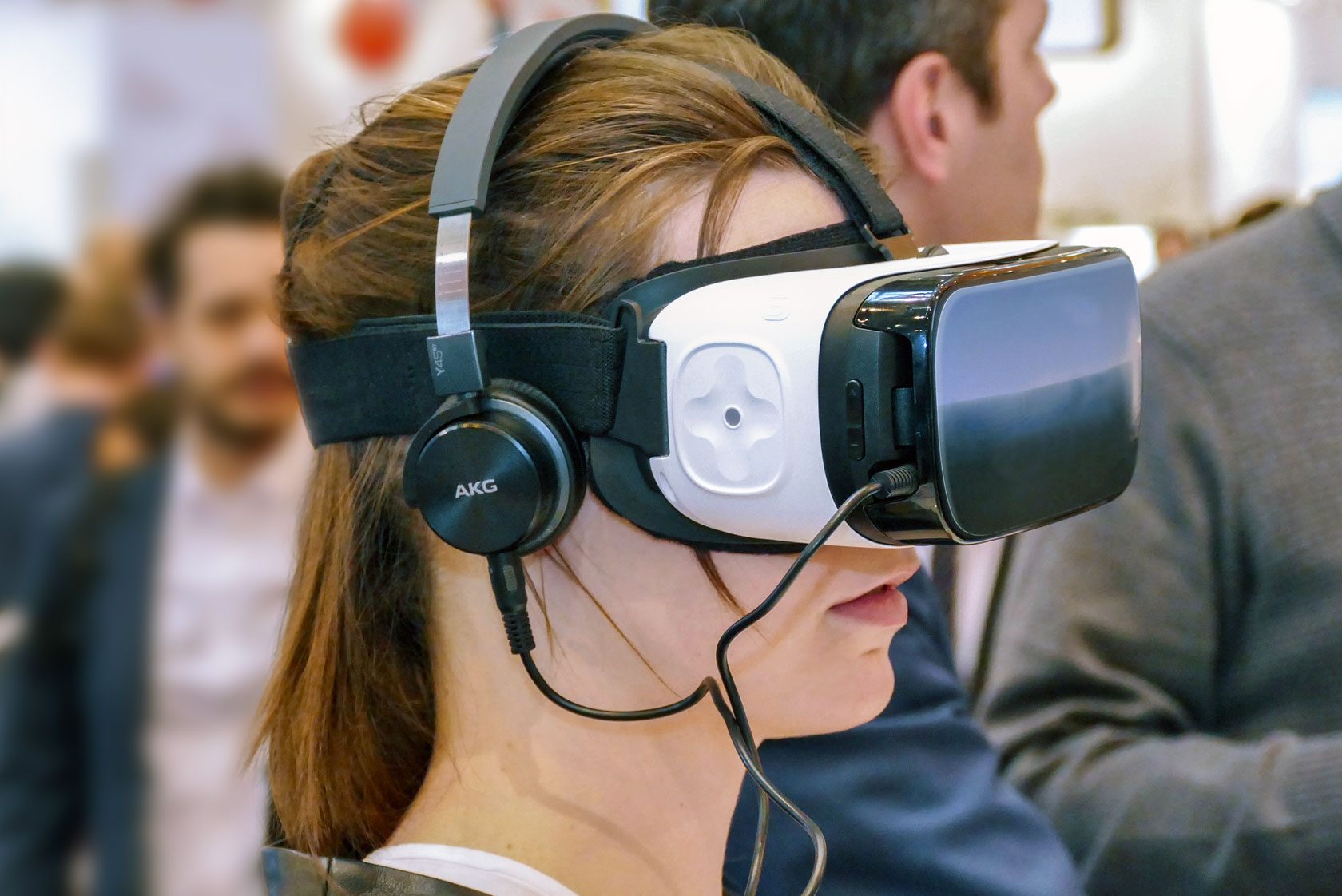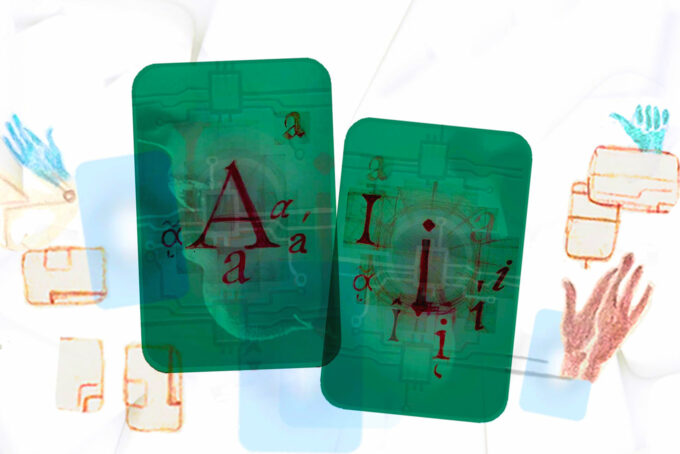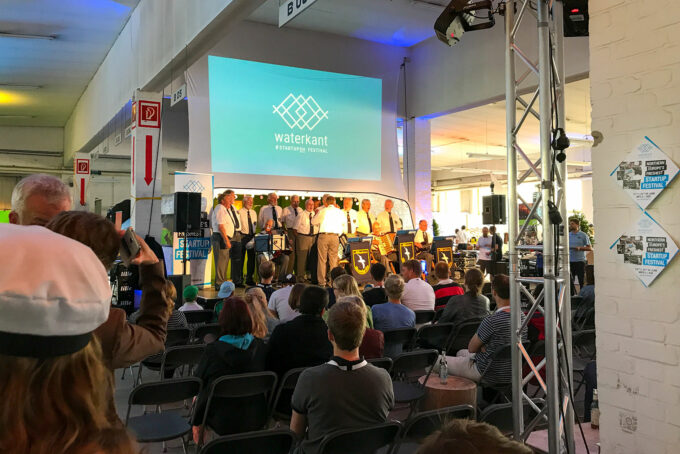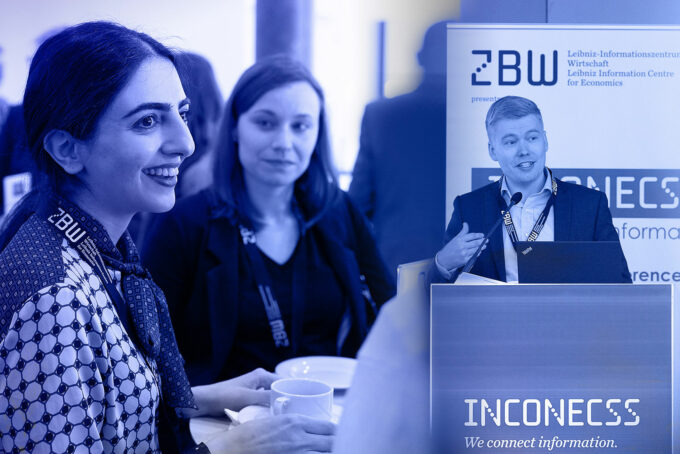
Waterkant Festival 2018: A Model for Learning and Working 4.0
The Waterkant #startupSH Festival 2018 inspired with current technologies and trends, a start-up atmosphere, networking opportunities and good organization. Some highlights like community building, co-working, a new culture app and open data are summarized in our blog post.
On 14 and 15 June 2018 the 2nd Waterkant #startupSH Festival 2018 took place on the former naval airfield in Kiel. The Waterkant Festival was organized by Open Campus, StarterKitchen and the FabLab in Kiel and was attended by international guests from various fields. The sessions and participation offers were manifold; here we offer a short insight.
#waterkant is one of the coolest #startup festivals in Germany – not only location-wise #Waterkant18 #AugmentedReality #gaming #greentech #mobility @waterkant_sh pic.twitter.com/CVuECcglln
— Petra Dickel (@hochimnorden) 15. Juni 2018
Open Data, Science Communication and Culture App
Sven Thomsen, CIO of the State Chancellery of the State Government of Schleswig-Holstein, spoke about open data. The state government is committed to open data . According to Thomsen, there is already a lot of open data in Schleswig-Holstein. However, it is often difficult to find. Thus, the data from a measuring station at the Theodor-Heuss-Ring in Kiel, which lead to a discussion about a driving ban for diesel vehicles being discussed, are available as open data. But even he, although he is an insider of the subject, needed 32 minutes to find this data. This is not the “easy and usable way” that the state government has set itself for open data. All data in Schleswig-Holstein will be made available via API. The state government invites the inhabitants to “Hack your country”. That is why they are to be enabled to simply take data, such as that of the measuring station, and, for example, to develop apps on this basis that improve life in Schleswig-Holstein. To this end, a small team will be assigned to take care of opening up data. An open data portal in Schleswig-Holstein is to go online in 2019.
Goals of #OpenData Strategy of #SchleswigHolstein #DerEchteNorden #Waterkant18 by @sven_thomsen pic.twitter.com/G4JbXH6U0k
— Moritz Karg (@mokaki) 15. Juni 2018
With the culture app Kultursphaere @kultursphaere a new offer from Schleswig-Holstein was presented. Cultural activities that are available in the vicinity and on the way are presented on a virtual map on the smartphone, which lists all the cultural institutions of the federal state. Filter and search functions make it possible to select specific offers.
Wenn man nicht auf Google Maps steht, dann existiert der Ort nicht und man läuft verwirrt durch die Welt. (So oder so ähnlich) Die @kultursphaere hat eine VR-App dagegen und stellt diese vor. 📲 #Waterkant18 #Museen https://t.co/C4Sm3n2Xge pic.twitter.com/EgVXapD5WR
— Birte Sindt (@AhoiNupsi) 15. Juni 2018
Create a link between digital World and Reality: @kultursphaere Presented by @infsocblog at #Waterkant18 pic.twitter.com/RYCADgfso3
— Martin Lätzel (@MartinLaetzel) 15. Juni 2018
Prof. Tom Duscher focused on how scientists can make their findings visually understandable.
How do #scientists visualize #data? @TomDuscher from @MuthesiusKH and @thefutureocean introducing innovative data #visualization at #waterkant18 pic.twitter.com/SNrIlrus9a
— Enno Prigge (@nopboard) 15. Juni 2018
Community building
In his session on community building, Steffen Voß recommended combining online and offline meetings.
How to build a Community. Meine Notizen. #waterkant18 pic.twitter.com/ev5NRmQi0L
— Steffen Voß 🇪🇺 (@kaffeeringe) 15. Juni 2018
A community that organizes itself both online and offline is the Digital Media Women. At their Meetup, Nici Beckendorf, member of Digital Media Women in Schleswig-Holstein, gave a brief insight into their activities and also recommendations for networking.
Die Sonne scheint und @crazylittlenici erzählt übers #Netzwerken und die #Otterpower die dabei entsteht. ❤️ #Waterkant18 pic.twitter.com/03zmxAoPpy
— Digital Media Women (@DigiWomenSH) 15. Juni 2018
The Digital Media Women are an association with 125 active volunteers from nine districts and over 19,000 community members. Its goals include supporting women in networking, making role models and diversity in the design of digital change visible to the outside world and participating in digital change on an equal footing.
Communities are also an issue in co-working. Ulrich Bähr presented how the project #CoWorkLand brings co-working to rural regions.
CoWorking auf dem Land – @ubaehr stellt sein Projekt vor. #waterkant18 pic.twitter.com/ilyj6YcFBv
— Steffen Voß 🇪🇺 (@kaffeeringe) 15. Juni 2018
He brought the container with him right away, which is being used as a mobile co-working space.
Freue mich, wieder bei #waterkant18 zu sein. Den #CoWorkLand #coworking Container würde ich am liebsten mitnehmen😍 pic.twitter.com/cdrZIQP16L
— Birgit Inken Fingerle (@klarkreativ) 15. Juni 2018
Waterkant Festival: Another great format for learning and networking
At least as important as the exciting sessions and hands-on offers: The lovingly organized surroundings, the location and the format of the event. The Waterkant Festival thus offered a forum for closer networking and the emergence of communities. It offered inspiration, new technologies, exchange, start-up ideas, maker atmosphere and much more. And all of this was perfectly organized, which was even an improvement in comparison with the first Waterkant Festival.
A thousand thanks to the entire orga team of #waterkant18 – you did a great job! pic.twitter.com/6IYCzaChFu
— Peter Schottes (@PSchottes) 15. Juni 2018
Thus, the Waterkant Festival embodies a model for learning and working that fits today’s world and also the context of open science.
Thank you all for an awesome #waterkant18, we'll see each other in 2019. For now, stay tuned!https://t.co/z2NtcHCcT6
— waterkant.festival (@waterkant_sh) 15. Juni 2018
Further Links:
- #Waterkant18 on Twitter
- Blog post about Waterkant 2017
View Comments

FOSTER Plus: How Libraries can Foster the Change to Open Science
Practical measures to support the culture change in science towards open science....



